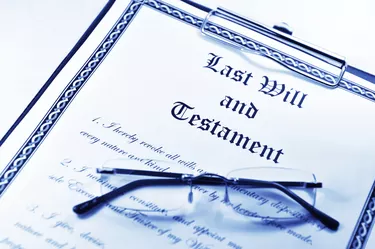
An executor has a fiduciary responsibility to carry out the final requests of a deceased individual as stipulated in the individual's will or trust. This includes handling the financial aspects of the estate, such as bill paying; liquidation, where necessary; and distribution of money and personal property to named beneficiaries. In addition to serving in this capacity, an executor may also be a beneficiary or recipient of money or property of the estate.
Executor-Beneficiary Role and Responsibilities
Video of the Day
While an executor follows the wishes of the deceased as stipulated in his will, he does make discretionary decisions, including final burial arrangements, asset management and disposition of assets. Conflict can arise if other beneficiaries, particularly family members, feel the executor is not acting responsibly or in accordance with the deceased's wishes or is acting for his own gain.
Video of the Day
Potential Problems
An estate executor is often a family member or close friend of the deceased, such as a spouse, sibling or oldest child. Some family members may feel slighted by the naming of the executor based on prior relationships and family history. While an executor has some leeway in how assets are handled, she must meet all financial obligations of the estate before dispersing funds to any beneficiary, herself included. If other beneficiaries feel the executor is not acting in the best interest of the estate, they may be able to contest the executor's suitability or actions in court.